Hey there! If you're navigating the complexities of a project, you know that changes can often arise, and it's essential to communicate these effectively. A well-crafted letter can help clarify the new scope, ensuring everyone is on the same page and aligned with the updated goals. In this article, we'll explore a helpful template you can use for your project scope change letter that keeps it professional yet conversational. Stick around for tips on how to make your message resonate!

Clear Description of Change
A project scope change in the context of software development involves modifying the original parameters of a project, including deliverables, timelines, or resource allocation. For instance, a change request necessitated by the integration of additional features, such as enhanced user authentication methods, may lead to an extended timeline from the initial estimate of four weeks to six weeks. This change could also require an increase in the budget by approximately 20% to accommodate additional developers. Stakeholders, such as project managers and clients, must evaluate impacts and ensure alignment with overall project goals, ensuring clarity in documentation to maintain transparency and accountability.
Reason for the Change
Project scope changes often arise from unforeseen factors influencing project execution. Common reasons for changes include shifts in market conditions (for example, a sudden increase in demand for a specific product), stakeholder feedback (such as requirements from key clients), regulatory updates (like new compliance mandates), or resource availability (such as subcontractor limitations). Furthermore, advancing technology can necessitate scope changes to leverage new tools and methodologies, while lessons learned from ongoing work can lead to a reevaluation of project objectives. It's essential to document these reasons thoroughly to maintain transparency and alignment among all project participants, ensuring successful implementation and completion of modified project goals.
Impact on Project Timeline and Budget
A project scope change can significantly affect the overall project timeline and budget allocations. Adjustments to the initial requirements, for instance, an increase in deliverables or a change in project specifications, can lead to extended timelines, requiring additional resources and personnel to meet new deadlines. For large-scale projects, such as those in construction or software development, this could mean pushing the completion date back by several weeks or months, thereby delaying the launch period. In terms of budget, unexpected changes can result in the need for increased financial expenditure, potentially impacting the allocated funds for other stages of the project. Key areas that may witness increased costs include labor, materials, technology, and even stakeholder engagement efforts. It is essential to document these changes meticulously, outlining the specific impacts on timelines and budgets to ensure clarity and maintain stakeholder trust throughout the project lifecycle.
Approval and Signature Section
Project scope changes require formal documentation. Essential details include project name, identification number, and date. A summary of requested changes should clearly outline modifications, rationales, and impact on deadlines or budget. The approval section must include signature lines for project manager, stakeholder representatives, and other relevant parties, allowing for proper authorization. Additionally, an area for comments or additional notes can provide context or clarification regarding the decision. Ensuring clarity in this section facilitates efficient communication and adherence to project guidelines.
Updated Project Documentation and References
Project scope changes often necessitate updated documentation to ensure all stakeholders are aligned. The project charter, located in the project management repository, must reflect the new objectives and deliverables. Updated references, including the project plan and risk management documents, should be revised to incorporate current timelines, resource allocations, and any identified risks or mitigation strategies. Consistent communication through methods such as progress meetings and status reports can enhance transparency regarding these changes. Furthermore, all team members must access the updated documentation through the shared project drive to maintain a cohesive understanding of modifications.

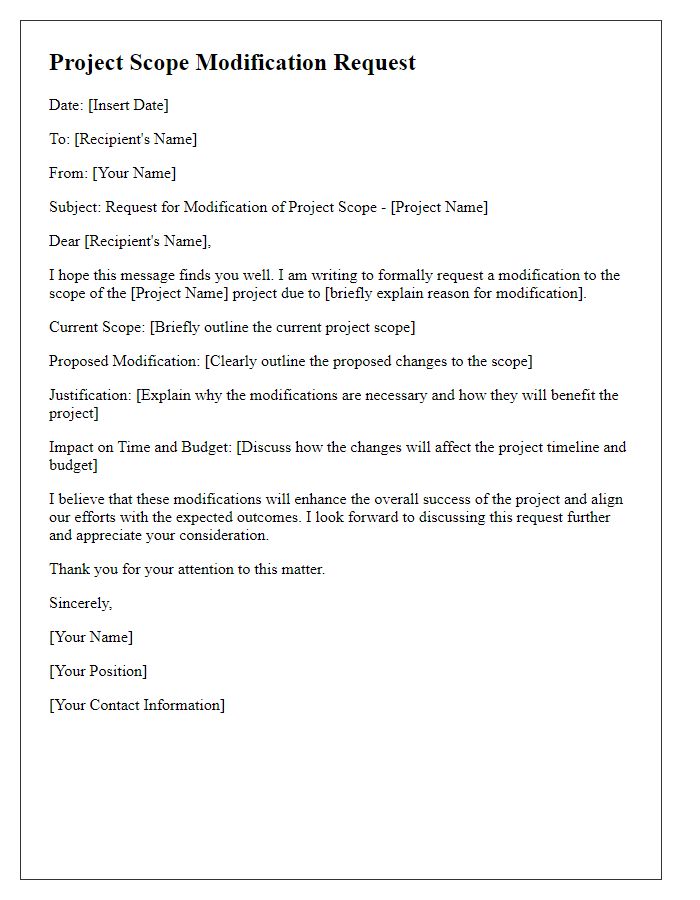
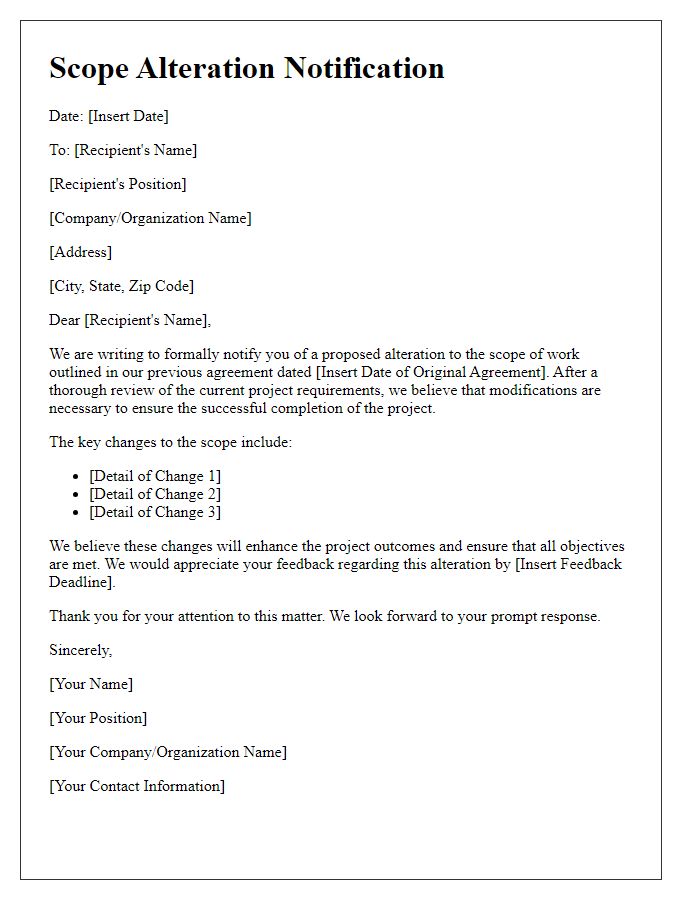
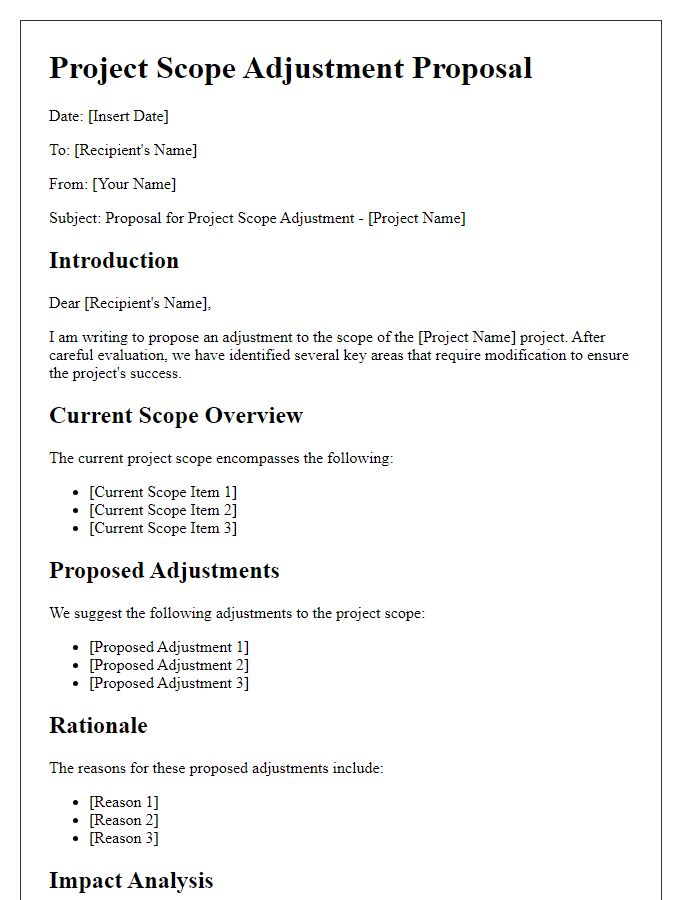
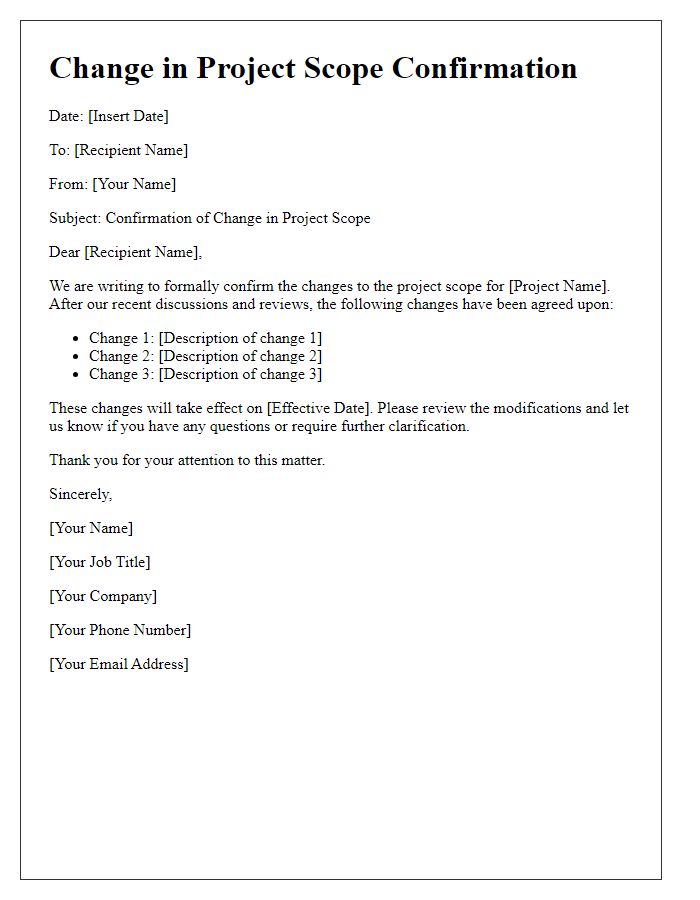
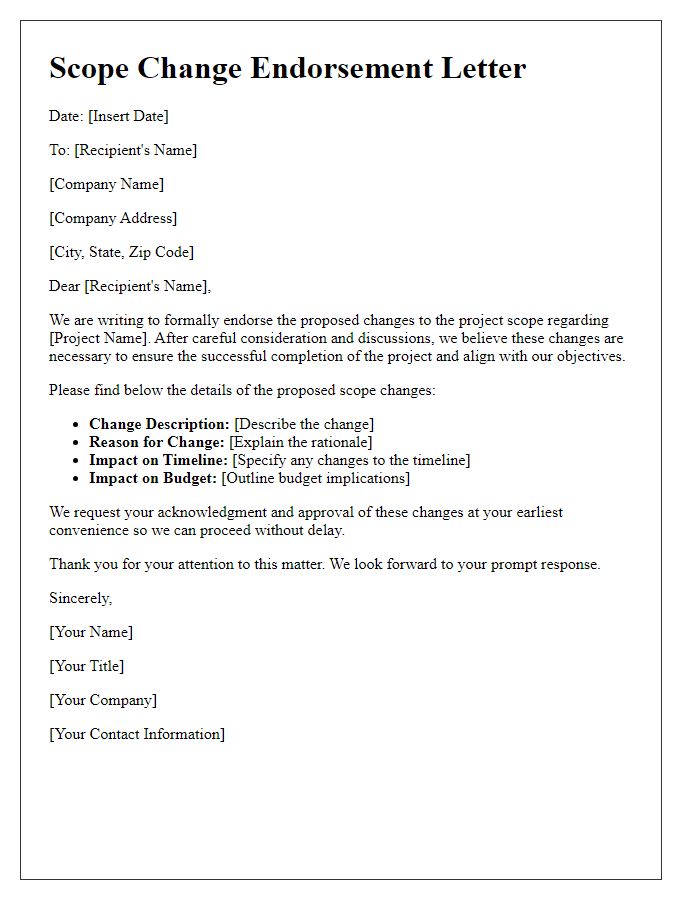
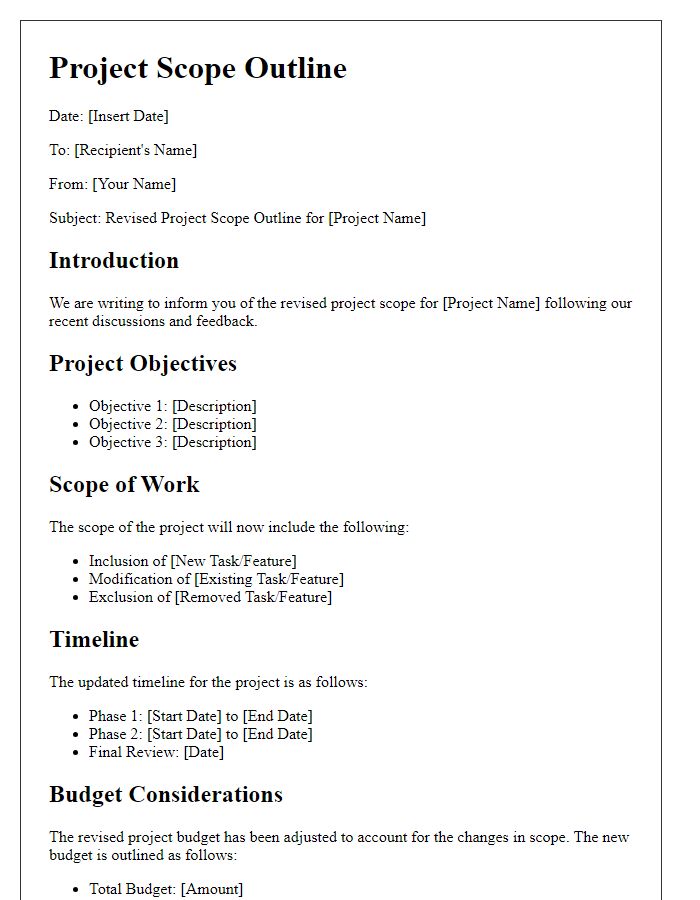
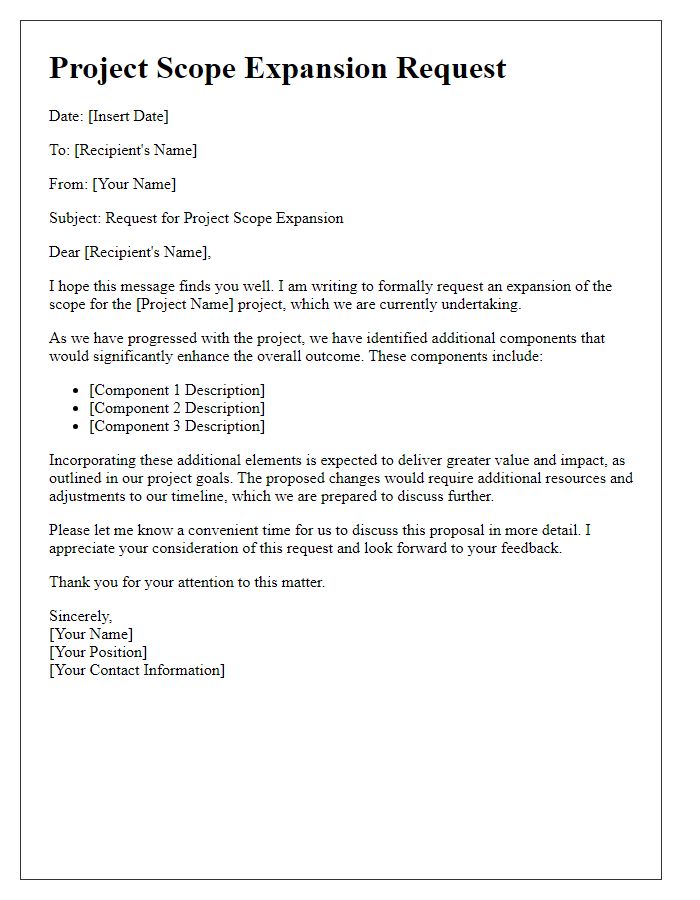
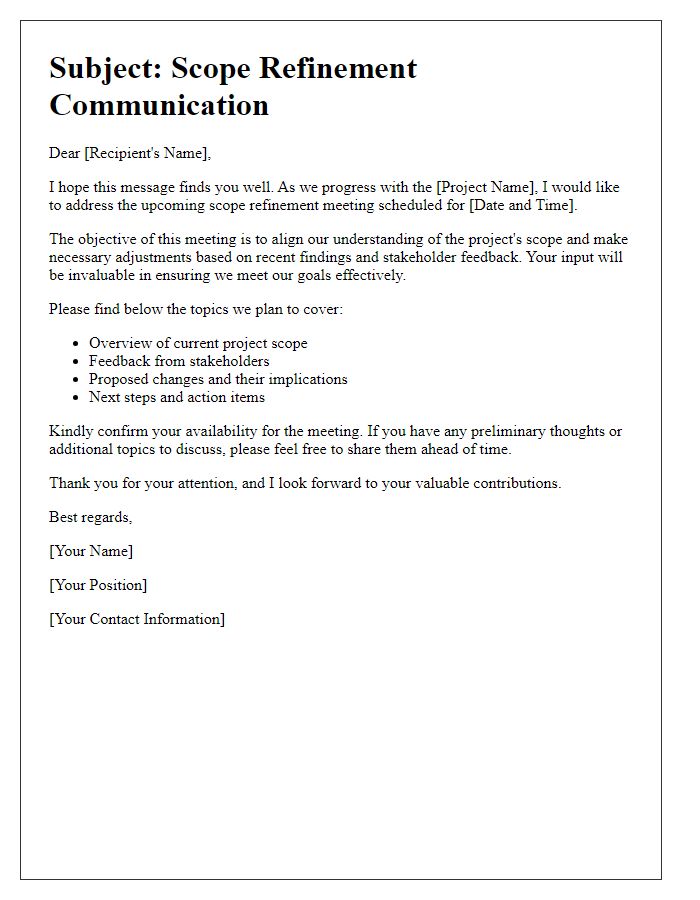
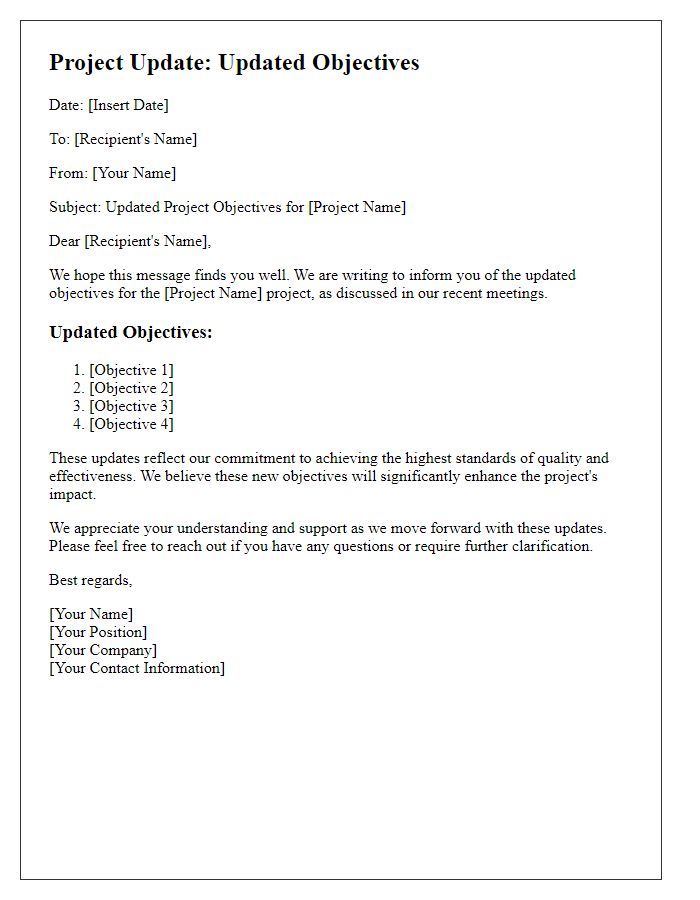
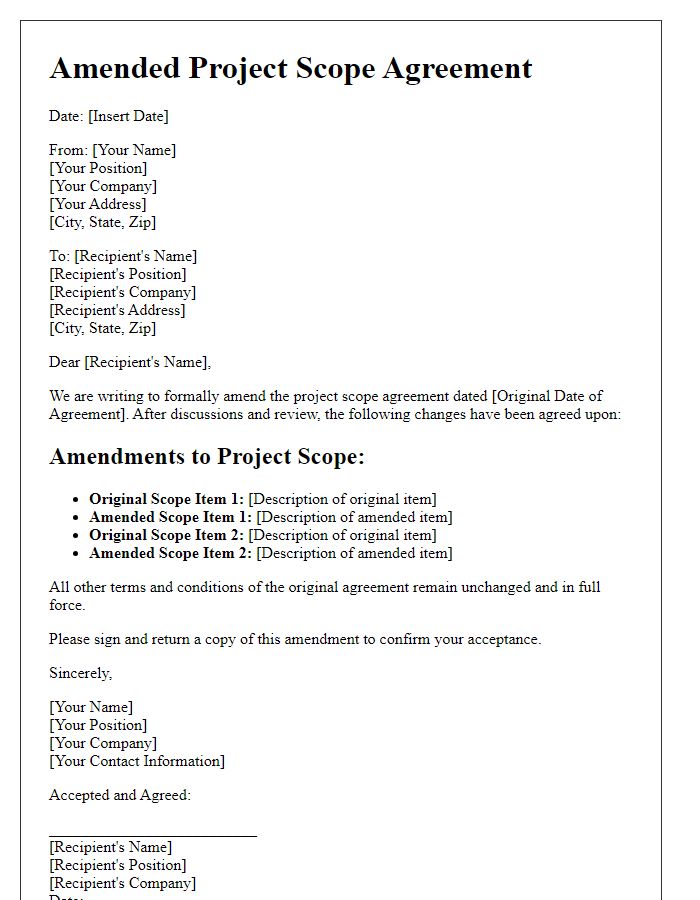


Comments